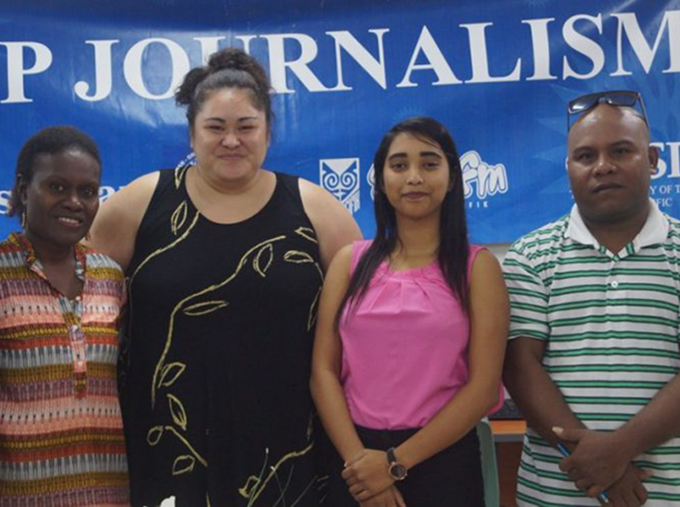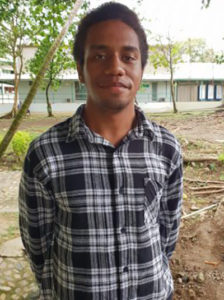
By Rosalie Nongebatu in Suva
Three journalism students from The University of the South Pacific in Suva have been selected to participate in a week-long environmental reporting project in the Solomon Islands.
After a stringent selection process, students Rosalie Nongebatu, Romeka Kumari and Ben Bilua were chosen to be part of the project titled, “Adapting to and mitigating effects of climate change and island sea level rise”, made possible through the Internews/Earth Journalism Network (EJN) Asia-Pacific and Bay of Bengal 2019 media grants.
The project involves journalism students conducting climate change reporting in the Cook Islands and the Solomon Islands.
READ MORE: USP wins US$20,000 grant to boost Pacific environmental journalism
Led by Wansolwara editor and USP Journalism staff member Geraldine Panapasa, the team is expected to visit areas in Honiara that are susceptible to the devastating impacts of climate change as well as report on vital efforts undertaken by stakeholders to address climate impacts on vulnerable communities.
Kumari, who is also the sports editor for USP Journalism’s student training newspaper Wansolwara, said climate change was an urgent issue that needed to be addressed at all levels.
“There are many untold stories of the threat and risks of climate changed faced by many Pacific Islanders, including those in the Solomon Islands,” she said.
“The trip is an opportune time to put faces to the stories of climate change and to re-emphasise the reality and gravity of the situation for grassroots people in these vulnerable communities.”

Benefitting aspiring journalists
Second-year journalism student, Epeli Lalagavesi, who will join the environmental reporting team to the Cook Islands later in the year, said the project would benefit aspiring journalists.
“I am excited about the trip to the Cook Islands for two reasons. First, it will enable me to witness, learn and report on climate change injustice as well as the challenges faced by the people of Cook Islands,” he said.
“Secondly, I hope to learn new skills, especially the concept of ‘mojo’ or using mobile journalism tools to disseminate information.”
Boost for environmental reporting
USP Journalism coordinator Dr Shailendra Singh said the grant was a boost for solidifying the foundations of environmental reporting for the future.
He said the Pacific was at the forefront of climate change impacts, on top of various other problems, such as the exploitation of fisheries and forestry resources, plastic pollution and waste disposal and management.
“Environmental issues in the Pacific are under-reported compared to the magnitude of the problems and because of the smallness of the Pacific media industry, journalists are generalists by necessity, with no specific beats such as environmental journalism,” Dr Singh said.
Although USP Journalism lacks resources to offer specific courses in environmental journalism, students report on the environment as part of their assessed news assignments, using the expertise available at other USP faculties as resource material.
Authentic learning
“The $US20k grant from EJN would take authentic learning – the idea of incorporating the classroom with the real world – to another level, with two teams of the best student reporters sent to the Cook Islands and the Solomon Islands to report on community mitigation efforts,” Dr Singh said.
He said the project was geared towards expanding coverage horizontally beyond Fiji, and vertically down to the grassroots level, building future capacity through student journalism.
The trip will take place from June 24 until July 1.
The Pacific Media Centre and Asia Pacific Report have a publishing partnership with the University of the South Pacific journalism programme.









































